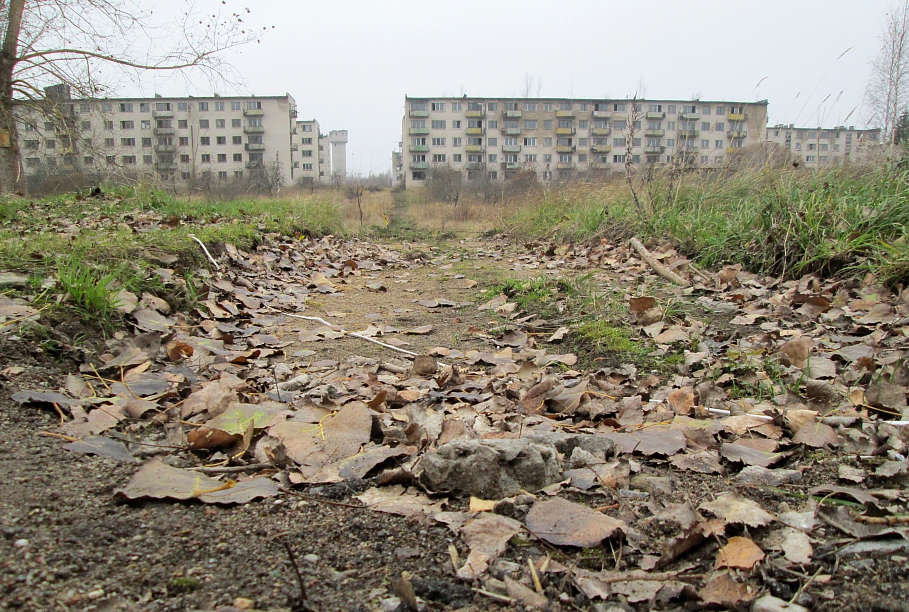As regional news source Kurzemnieks reported, out of 13 registered bidders, eleven took part in the November 6 auction, all of them of local origin. The Kurzeme real estate company now has a month to make full transfer of the payment to secure the deal. The company’s owner Maija Ķeniņa declined to comment on future plans, pointing out that the purchase is not yet complete.
Despite numerous attempts since 2010 to promote the sale of the abandoned workers’ town that was built as part of the Soviet Union’s early warning radar system in central western Kurzeme province, totally abandoned after the negotiated pullout of the last of Russian military personnel in 1999, the Skrunda-1 complex of altogether 70 apartment, school, hotel and hospital buildings as well as the surrounding territory has continued to deteriorate and fall further into ruin since.
The property has gone through various failed ownerships, beginning with a Russian company that planned to build a swine-feeding facility but subsequently disappeared without making any payments on its €150,000 bid. The next bidder, from Azerbaijan, offered €1.5m, but also declined to complete the deal soon thereafter.
In 2010 a €170,000 bid never materialized from a group of Russian investors calling themselves Iniciatīva Eiropa.
The string of cancelled auctions has left the local government losing a great deal of money in uncollected real estate taxes, as well as holding the bag for the troubled empty grounds.
Locals even claimed that internet giant Google had expressed interest in the site for setting up a mega-center for its servers in Europe, but the reports were never substantiated. Now the place is popularly nicknamed ‘Chernobyl’, albeit thankfully free of radioactive contamination.
Finally in the spring of 2014, Latvian company Transib bid €82,000 on the property, but the auction was cancelled after its failure to make any payments, despite beginning small-scale salvage works and hiring a security guard to watch the place.
On May 4, 1994 the main radar installation facility was brought down with explosives as thousands of people gathered and cheered to the accompaniment of a specially-composed musical suite marking the symbolic event. Within five years, all of the remaining Russian military staff had left the country.





























